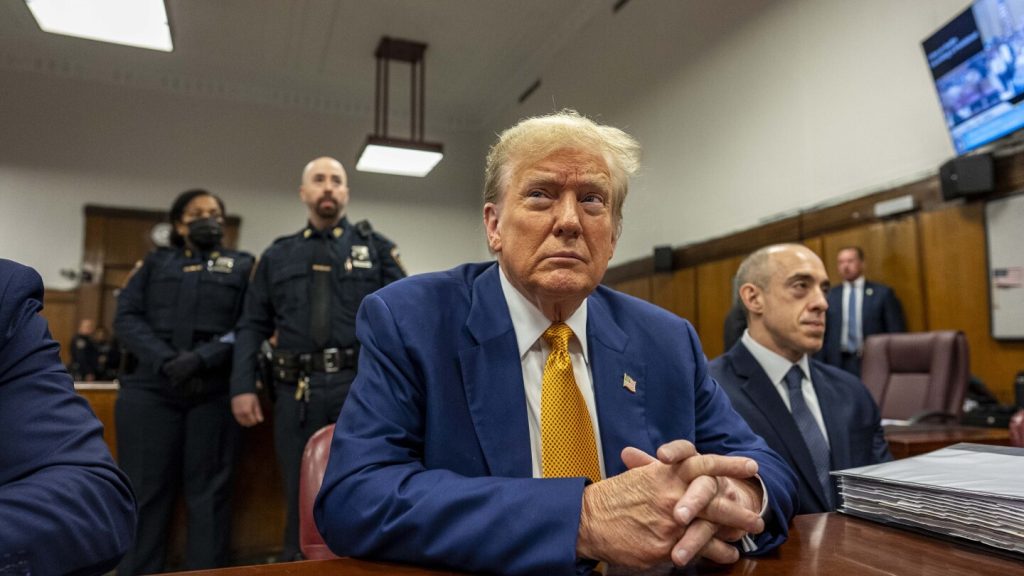Jurors in the hush money trial of former President Donald Trump were presented with a recording of him discussing a plan to purchase the silence of a Playboy model who claimed to have had an affair with him. The recording, made by Trump’s then-lawyer Michael Cohen in September 2016, revealed details of the plan to buy Karen McDougal’s story of the extramarital relationship. This piece of evidence is crucial in connecting Trump to the hush money payments that are central to the trial.
The testimony from attorney Keith Davidson, who negotiated the deal for McDougal’s silence, shed light on the efforts made to prevent negative stories from surfacing during the 2016 presidential campaign. Davidson admitted that his actions may have contributed to Trump’s victory, raising questions about the influence of the hush money payments on the election. The prosecution aims to establish a direct link between these payments and Trump’s presidential ambitions, emphasizing the significance of the case beyond just allegations of personal misconduct.
Davidson’s testimony highlighted the use of “catch-and-kill” tactics in the tabloid industry to suppress damaging stories about Trump’s affairs. He represented both McDougal and Stormy Daniels in negotiations that led to the purchase of their silence. The recordings made by Cohen, including the one involving discussions about McDougal’s story, provide further evidence of the efforts to bury these stories before the election. Trump’s lawyers attempted to distance him from the negotiations, emphasizing Cohen’s role in handling the hush-money matters.
The agreement requiring Daniels to keep quiet about her alleged affair with Trump was also presented in court, revealing the use of pseudonyms to conceal their identities. The document referred to Trump as “David Dennison” and Daniels as “Peggy Peterson,” with Trump’s name manually added to confirm his identity. The payment made to Daniels was reimbursed by Trump’s company and recorded as a legal expense, leading to the charges of falsifying business records against the former president. Davidson’s testimony further detailed Cohen’s frustrations about not being reimbursed for the payments and his interactions with Trump after the election.
Prosecutors have requested fines for comments made by Trump that allegedly violated a judge’s gag order, barring him from attacking witnesses and jurors connected to the case. Trump has pleaded not guilty to the charges and denied any wrongdoing in the hush money payments. The trial has raised questions about the extent of Trump’s involvement in the negotiations and the potential implications for his presidency. The outcome of the trial will impact not only Trump’s legal standing but also his public perception as a former president facing criminal charges.


